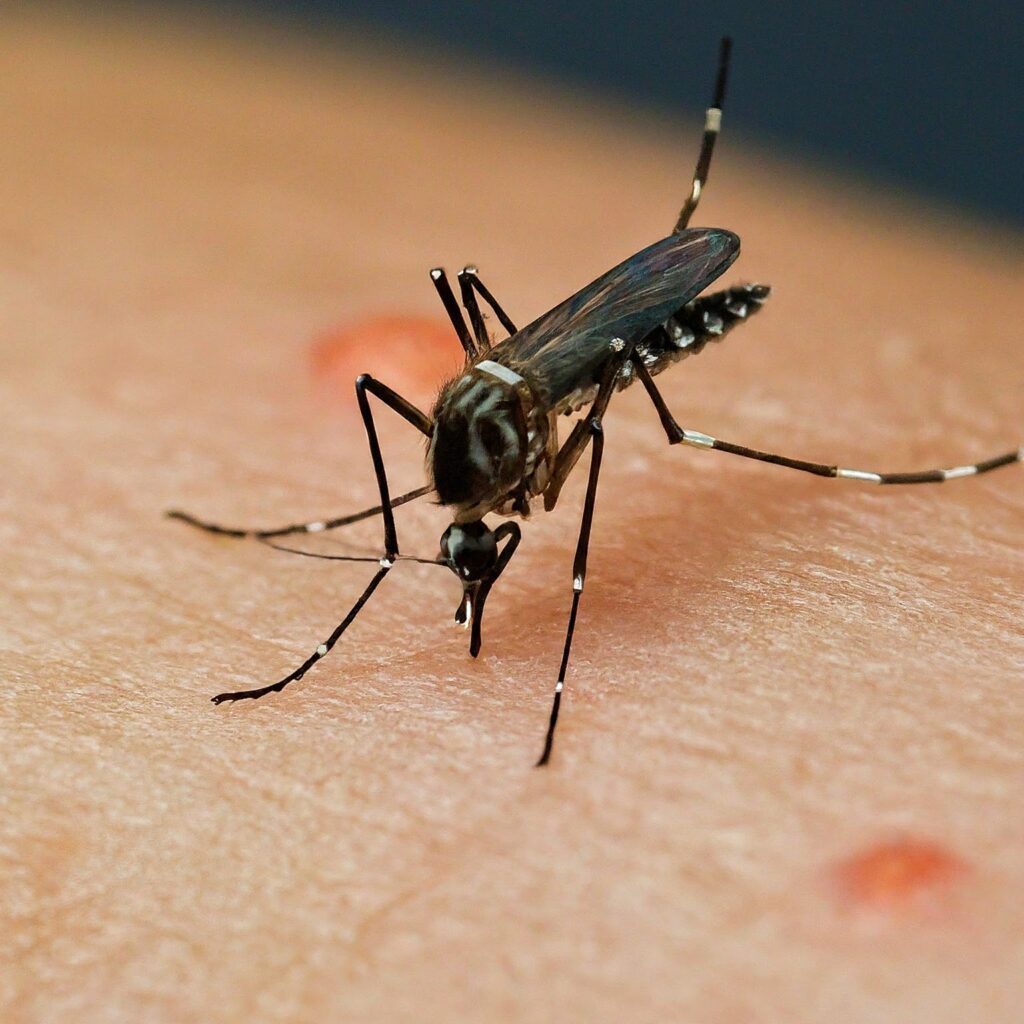Mosquitos, the tiny, winged vampires of the insect world, are a pervasive pest across the United States. These blood-sucking bugs are most prevalent in humid, warm climates, making the Southern states their preferred playground. While they’re active throughout the warmer months, their peak season typically coincides with the height of summer making summer the prime season for managing mosquito menaces.
Interestingly, only female mosquitos bite humans and animals. They require a blood meal to produce eggs, a rather gruesome necessity for such a diminutive creature. The males, on the other hand, are harmless nectar-sippers.
Fun Fact: Mosquitos can smell carbon dioxide and other chemicals emitted by humans and animals from hundreds of yards away.
Mosquito breeding is closely linked to warm, humid conditions. While they can breed year-round in tropical climates, in the United States, the breeding season typically peaks during the summer months. However, with climate change, this period may be extending. Female mosquitos lay their eggs in standing water, which hatch into larvae and eventually pupae before emerging as adult mosquitos. The entire process can take as little as a week under optimal conditions.
Signs of Mosquitos on Your Property
If you’re experiencing an influx of these sucky uninvited guests with itchy consequences, chances are you’re hosting a mosquito party. Here are some telltale signs of a mosquito infestation:
- An army of itchy bumps: This is the most obvious indicator. If you’re scratching more than you’re smiling, you’ve got a mosquito problem.
- Standing water: Mosquitos breed in stagnant water, so any puddles, birdbaths, or clogged gutters are potential breeding grounds.
- Increased mosquito activity at dusk and dawn: These are peak feeding times for mosquitos. If you’re being bombarded by bites during these hours, it’s a clear sign.
- If your small dog is being carried away by tiny winged insects, you are in Texas and these are mosquitos.
Mosquitos: More Than Just a Menace
Despite their irritating nature, mosquitos do play a role in the ecosystem. They serve as a food source for various predators, including birds, bats, dragonflies, and fish. Additionally, some mosquito species pollinate plants. However, these benefits are far outweighed by the negative impacts, particularly the transmission of several mosquito transmitted diseases.

Mosquito-borne illnesses are diseases transmitted to humans and animals through the bite of an infected mosquito. These diseases can vary widely in severity, from mild flu-like symptoms to severe and potentially fatal conditions. Common mosquito-borne illnesses include West Nile virus, Zika virus, dengue, chikungunya, and malaria. Symptoms can range from fever, headache, and body aches to more serious complications affecting the nervous system, joints, and organs. Preventing mosquito bites through repellents, protective clothing, and eliminating standing water is crucial for reducing the risk of contracting these diseases.
Make Your Home Mosquito-Free
To deter these pesky pests from turning your property into their personal buffet, there are a few things that you can do to make your property less attractive to these blood suckers.
- Eliminate standing water: This is the most crucial step. Check gutters, birdbaths, flowerpots, and any other containers that can hold water and empty them regularly.
- Landscape wisely: Mosquitos love dense vegetation. Trim bushes and tall grass to reduce their hiding places.
- Install screens: Keep mosquitos out of your home by ensuring all windows and doors have tight-fitting screens.
- Dress appropriately: Wear long sleeves and pants, especially during peak mosquito hours.
Professional Mosquito Control
Mosquito control has grown in popularity over the years as mosquito populations have shot up across the US, however not all services are created equal. There are predominately two different approaches to mosquito treatments: a misting system or routine treatments.
Both approaches have similar effectiveness, but with the regular service, you do not need to buy and maintain an expensive system.
Regardless of your approach, the next part of professional control is what chemicals are being applied. There are several chemicals available that affect mosquitoes and other insects differently as well as have a different effect on the mosquitos breeding cycle. Given this, it is always best to talk to your professional about their approach and what concerns you may have.
Prickly Pear uses two approaches to manage mosquito menances. Our team uses a fogger to apply a targeted pesticide for mosquitos that is bee safe and a mosquito bait station called In2Care to minimize the chemicals we apply while creating the best outcome for you.
